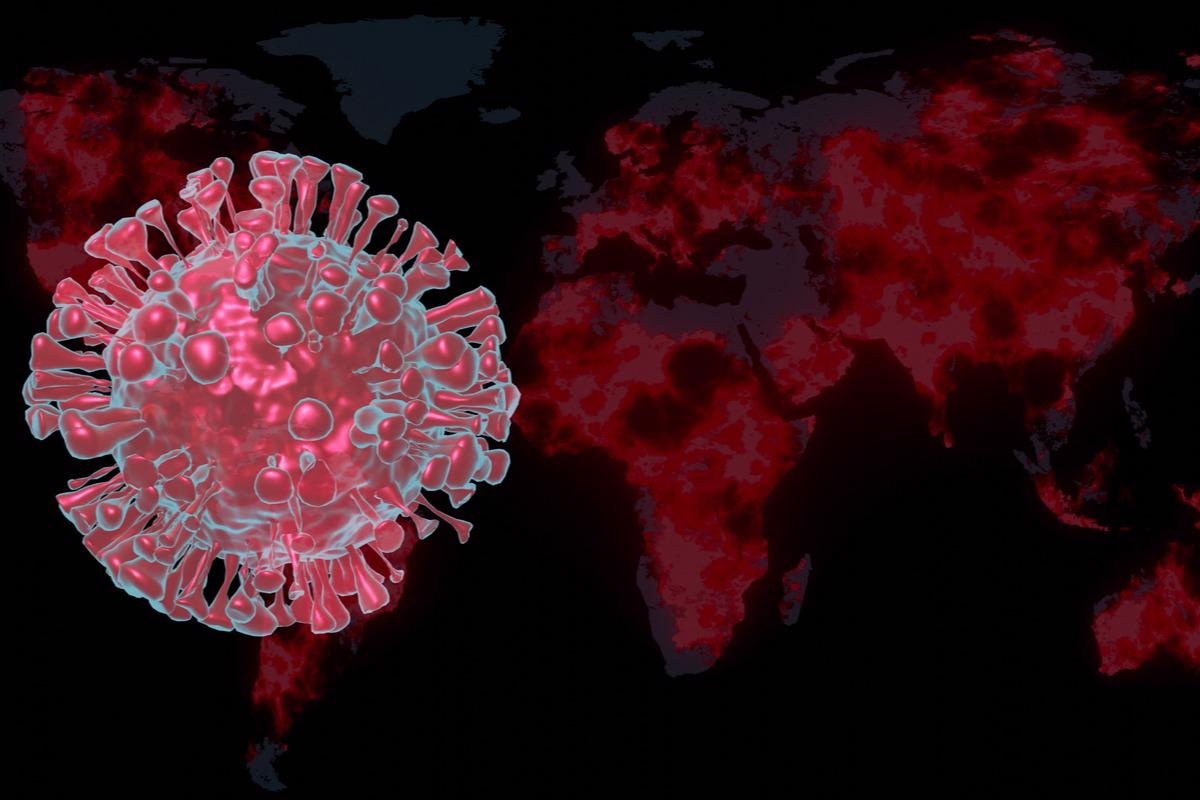The coronavirus disease 2019 (COVID-19) pandemic originated in Wuhan and has since spread to nearly every country globally. With a rapid transmission rate and high risk of severe disease and death amongst at-risk groups such as the elderly or immunocompromised, many countries were forced to enact harsh restrictions to prevent the disease from spreading further. These included mandatory face masks, the closing of public areas, and even full lockdowns/stay-at-home orders. Since the development of several different vaccines, some developed nations have lifted these restrictions.
 Study: Multistate Outbreak of SARS-CoV-2 Infections, Including Vaccine Breakthrough Infections, Associated with Large Public Gatherings, United States. Image Credit: korrakot sittivash/Shutterstock
Study: Multistate Outbreak of SARS-CoV-2 Infections, Including Vaccine Breakthrough Infections, Associated with Large Public Gatherings, United States. Image Credit: korrakot sittivash/Shutterstock
However, several new variants of the original severe acute respiratory syndrome coronavirus 2 (SARS-CoV-2) have arisen. The variants tend to show mutations in the spike protein, which is essential to the pathogenicity of the organism. In the early days of the pandemic, many tests looked for the RNA of this protein, and most vaccines produced antibodies against it. However, some of the new variants change the conformation of the spike protein enough to reduce the efficiency of these vaccines.
In a study published in Emerging Infectious Diseases, researchers from the Centers for Disease Control have investigated a case in Massachusetts that showed a high proportion of vaccine breakthrough infections.
The study
The researchers focused on Provincetown in Massachusetts, with a permanent residency of approximately 3000 individuals, although it can reach up to 60,000 in the summer. Many visitors traveled to the town in early July, and there were many large gatherings in tightly packed spaces, and mask-wearing was not recommended for the vaccinated or required indoors.
By the 10th of July, there was a clear increase of COVID-19 cases amongst those who had visited Provincetown, even in fully vaccinated individuals. By the 14th, authorities had expanded mobile testing and recommended any who visited Province town or had close contact with those who had received a test.
The researchers defined primary cluster-associated cases as positive SARS-CoV-2 test results within 14 days of traveling to or residing within Provincetown within the specified dates or remaining in close contact with one who had. The researchers collected data on vaccination status if individuals were symptomatic or asymptomatic, demographic data and clinical outcomes, as well as contact tracing data. Secondary cases were identified through contact tracing and self-reporting.
Between the 5th and 31st of July 2021, 1098 individuals who traveled to or resided within Provincetown showed positive test results – the vast majority of which were visitors. The Delta variant and sublineages thereof were the most common infections, and most primary cases were men, under 50, and white.
Thirty secondary cases were detected, eighteen of which occurred in fully vaccinated individuals. These secondary cases were linked to 26 primary cases, 21 of which occurred in fully vaccinated patients. In 16 out of the 18 secondary cases in which the secondary case was fully vaccinated, the primary individual was fully vaccinated.
Among the 1128 primary cases, a total of 918 were vaccine breakthrough cases occurring in fully vaccinated individuals. 13% of these had underlying medical conditions associated with increased risk for and severity of COVID-19. Out of the 918 breakthrough infections, 55% had received the Pfizer/BioNTech vaccine, 32% had received the Moderna vaccine, and 13% had received the Johnson & Johnson vaccine.
Ninety-six percent of infected individuals were symptomatic, with an equal portion of vaccinated and non-vaccinated individuals. Eight people were hospitalized with severe COVID-19, seven of which were fully vaccinated. Six of the eight hospitalized had underlying medical conditions. 2 individuals required admittance to the ICU, one fully vaccinated.
Conclusion
The authors highlight how their research shows how quickly the Delta variant can spread through even a highly vaccinated population. Several studies have identified the ability of the Delta variant to evade both vaccine-induced and natural immunity, and vaccine breakthrough cases are becoming more and more common as the vaccination rate rises.
The researchers also draw attention to other work identifying reduced vaccine efficiency against the Delta variant and its sublineages as more time passes - likely due to falling immunity over time. While booster shots may help prevent immunity reduction, as long as the disease has a significant human reservoir in non-vaccinated individuals and countries that struggle to vaccinate their population, new variants will continue to arise that can cause breakthrough infections.
The researchers underscore the need for the fully vaccinated to continue taking reasonable precautions to prevent further transmission of SARS-CoV-2 by wearing face masks, avoiding crowded settings as much as possible, and practicing social distancing.
Journal reference:
Gharpure, R. et al. (2022) "Multistate Outbreak of SARS-CoV-2 Infections, Including Vaccine Breakthrough Infections, Associated with Large Public Gatherings, United States", Emerging Infectious Diseases, 28(1). doi: 10.3201/eid2801.212220 https://wwwnc.cdc.gov/eid/article/28/1/21-2220_article